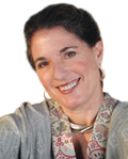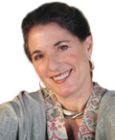
Friends
Child-Free Marriages
First-person account: Living Without Landmarks: The Reality of Living Child Free
Posted February 5, 2014
I was once asked to help lead a support group on Mother’s Day for women who had lost their mothers, or who had not had children…and we were fairly bombarded with requests. Many of the participants expressed relief at having a place to bring the difficult feelings: 1) Not being like everyone else or all the Hallmark cards, 2) Grief and loss over lost people or lost opportunities, 3) Confusion or lack of clarity about how to choose or build a life according to their real choices.
The following blog post is written by someone who, along with his wife, has chosen a “child free” life. His reflections, including dealing with other people’s expectations, might be of interest to anyone contemplating either a “child free” marriage or other nontraditional paths.
Living Without Landmarks: The Reality of Living Child Free
by Jeff Weinberger
I violate social norms and people’s assumptions. Many aspects of our society, from the social fabric of our communities to how we are expected to plan our lives, are based on the premise that once we reach adulthood, we will have and raise children. In failing to conform to this social norm, I have managed to confuse and confound everyone from my friends to my financial planner with how I think of and define the course of my life.
My wife and I are child-free. While there was quite a bit of turmoil in the process of arriving at that decision (and quite a bit of commentary from our parents), it was a decision we made. It’s not by accident, medical necessity or any of the other reasons people assume one might be child-free. We chose not to raise children, and we live our lives free of both the joys and burdens doing so would bring.
Society, however, is built around a family structure that requires parents and children (and children who grow up to be parents, and so on). Everything from our social events to our advertising assumes a lifecycle of events — generally birth, religious confirmation, education, marriage, house-buying, children, similar events for those children, retirement, death.
It’s not that I don’t experience some of that (I was born and was a bar mitzvah; I managed to complete two degrees, then got married); it’s that I won’t experience any of that for my non-existent kids.
The path I chose for my adult life has none of the established landmarks. We have to make our own.
We certainly have life events. We change jobs. We have both launched businesses. We adopted a dog. But we don’t throw parties for these (we do for my birthday, but that’s a different story).
There are two things that most clearly illustrate the difference between choosing life as a parent and choosing to be child-free: our friends and social relationships, and our plans and goals.
My life has changed in ways many of my parent-friends don’t understand. While we all had circles of friends when we were young and single (or newly married), their circles shifted to focus on kids’ activities, from playgrounds to schools to sports. Their friends changed, but in ways they expected, because that was what they were raised to expect.
My circles of friends changed also. My friends became parents and slowly slipped into their lives — and out of mine. My group of friends evolved to comprise colleagues and younger singles. I kept a few of my closest friends, but most just went away, as their friendships became focused on other parents and their kids’ activities.
Then something interesting happened. As I reached my 40s and 50s, I met more and more people who are also child-free. My circle of friends grew as more of us connected. One child-free friend wisely observed, “It is now up to us to create our own social structure.” Now, I find myself among people in a similar situation, and we are defining our own social structure and helping each other find our way.
The paths of our lives take a very different course, and the decisions are also very different.
Consider this: When most of you parents are making life or financial plans, they center around the costs and events of your children’s lives: activities, education, maybe weddings. Then you add in your own retirement. I plan for retirement (or as I call it, “financial independence”), but no other landmarks are pre-defined for me.
I have the freedom to plan for what I want my life to be. I also have the burden of figuring out what that might be and how to do it. There are no landmarks to guide me and no milestones to tell me how far I’ve come. I have to make all that up. You can imagine how my very formulaic financial planner reacted to this.
Like you parents, I have no need to retire when I’ve reached a given age. But unlike you parents, I have no grandchildren whom I’d rather visit than spend time at work. I have nieces and nephews (some of whom are not, technically, related), but it’s not the same decision.
Now you think I’m sad about this. I’m not. It is a decision I made. It has advantages and disadvantages. Haven’t you ever wanted to chuck it all and do something completely different? I can anytime I want (insert gloat here).
Whether you look at this as a choice between being child-driven and self-driven, or in some other context (please keep your religion to yourself here), it’s an interesting path.
From the day you are born to the day you die, society tells you there are things you should do. And most people do them. But I, along with an increasing number of people, don’t. The road I’ve chosen has no landmarks or milestones. It’s not for everyone. But I enjoy it, and I value the decisions and challenges I face every day because of that choice.
I get to make it up as I go along.
“Two roads diverged in a wood and I / I took the one less traveled by / and that has made all the difference” (Robert Frost, “The Road Not Taken”). This has defined so many things in my life. But if you read the rest, you find, “Though as for that the passing thee had worn them really about the same.” There’s no better choice. There’s just a choice. And the opportunities and consequences it brings.
I’m hopeful the language and structure of the child-free choice will become more commonly understood. And that those of us who have made that choice will start to find our landmarks.
To reach Jeff Weinberger, please use jeff@jeffweinberger.com or visit http://posthaven.jeffweinberger.com



